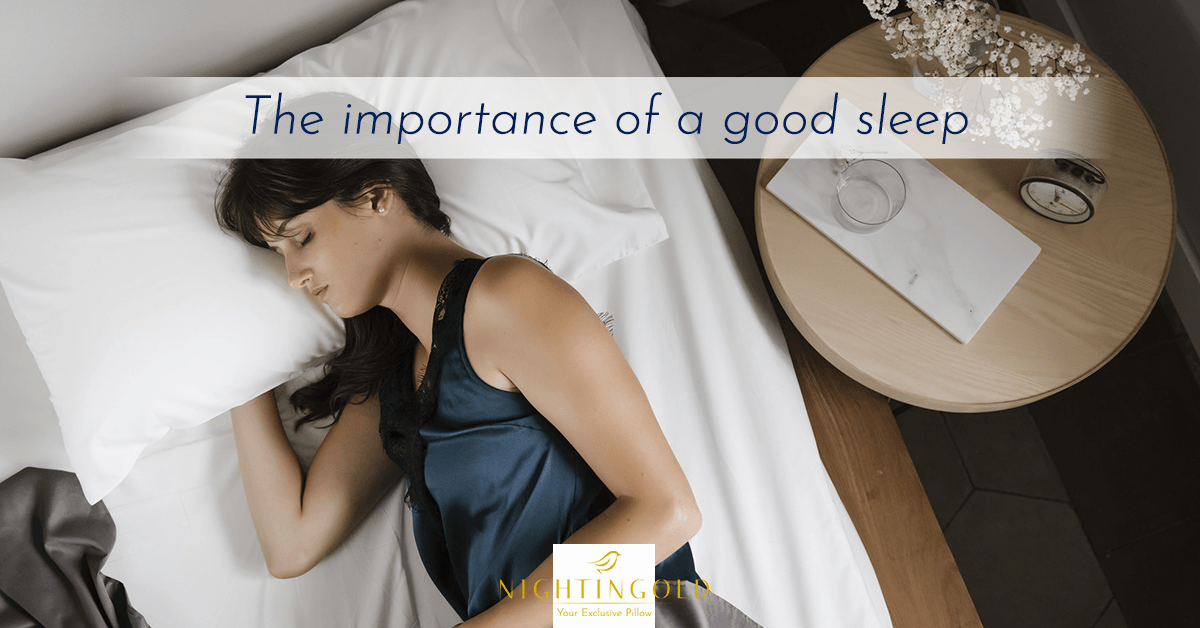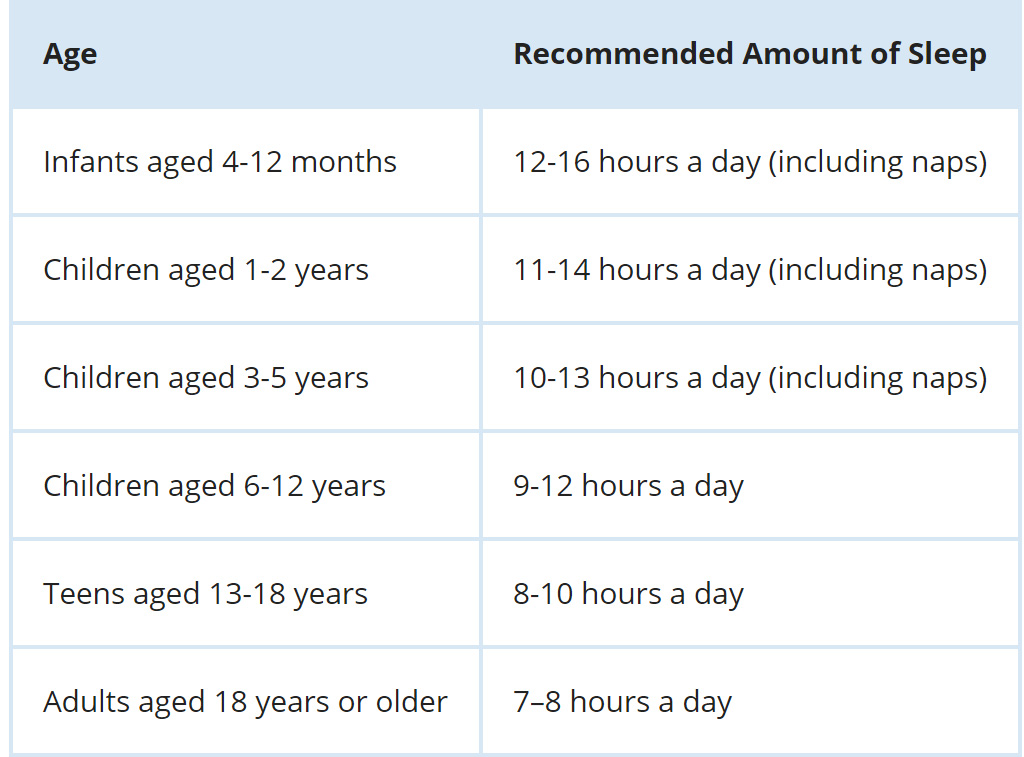The importance of a good night’s sleep
Having a good night’s sleep is, unfortunately, not so common. Do you know that people today get considerably less sleep than their ancestors, and that the quality of their sleep has decreased as well?

A good night’s sleep is incredibly important for your health, as much as eating healthy and exercising.
A recent research by Kristen Knutson , a professor of neurology and researcher, showed that there was a significant change in the duration of people sleep from 1975 to 2006; an increase of short sleep periods of less than 5.5 hours.
Demographically it seems that people from 45 to 54 years of age were most likely to be short sleepers and that women were less likely to be short sleepers than men.
Actually it has been demonstrated a direct correlation between sleep deprivation and stress or other psychological diseases.
Why it’s a a good night’s sleep so important?
The way you feel while you’re awake depends in part on what happens while you’re sleeping.
Do you know that during sleep your body is working to support healthy brain function and maintain your physical health? In children and teens, sleep even helps support growth and development.
More generally, sleep plays a vital role in good health and well-being throughout your life. Getting enough quality sleep at the right times can help protect your mental health, physical health, quality of life, and safety.
The damage of a poor night’s sleep
Sleep deficiency is a phenomena that can manifest itself in different ways.
If you are lucky, it causes to you immediate and visible effects: fatigue, muscle pain, and nervousness are the most common effects.
But sleep deprivation may be more treacherous. It is directly correlated with the increase of some chronic health problems. It also can affect how well you think, react, work, learn, and get along with others.
Emotional Well-Being and Healthy Brain Function
Sleep helps your brain work properly. While you’re sleeping, your brain is preparing for the next day. It’s forming new pathways to help you learn and remember information.
Sleep deprivation have far-reaching effects on cognitive performance
If you’re sleep deficient, you may have trouble making decisions, solving problems, controlling your emotions and behavior.
And there is more. Sleep deficiency also has been linked to depression, suicide, and risk-taking behavior.
Children and teens who are sleep deficient may feel angry and impulsive, sad or depressed and may have problems getting along with others.
Physical Health
Sleep plays an important role in your physical health.
The health of your spine is put to the test every single day from the position you are assuming while you sleep. Do you know the impact your sleep position may have on your health?
But there is much more.
Sleep is involved in healing and repair of your heart and blood vessels. Ongoing sleep deficiency is linked to an increased risk of heart disease , kidney disease, high blood pressure, diabetes, and stroke.
Sleep deficiency also increases the risk of obesity, particularly on teenagers. A good rest maintain, in fact, a healthy balance of the hormones that make you feel hungry (ghrelin) or full (leptin). The unbalance of these 2 hormones that occurs when you don’t get enough sleep is the cause of the feeling of hunger that brings you overeating.
Risk for diabetes can be increased from sleep deficiency, because it has an impact on the reaction of your body to insulin .
Sleep also supports healthy growth and development, as well as your immune system. It relies on sleep to stay healthy and to properly respond to common infections.
Daytime Performance and Safety
Productivity is another aspect of your life that is impacted by the quality of your sleep. People who are sleep deficient are less productive at work and school, taking longer to finish tasks, having a slower reaction time, and making more mistakes.
Can you imagine that after losing just 1–2 hours for several night your ability to function suffers as much as you haven’t slept at all for a day or two?
Lack of sleep also may lead to microsleep. Microsleep refers to brief moments of sleep that occur when you’re normally awake.
You can’t control microsleep, and you might not be aware of it. For example, have you ever driven somewhere and then not remembered part of the trip? If so, you may have experienced microsleep.
Even if you’re not driving, microsleep can affect how you function. If you’re listening to a lecture, for example, you might miss some of the information or feel like you don’t understand the point.
The worst is that often people don’t realize they are suffering of this problem: even with limited or poor-quality sleep, they may still think that they can function well.
People aren’t aware of the risks of sleep deficiency and the importance of a good night’s sleep.
Signs and symptoms of sleep deficiency
The signs and symptoms of sleep deficiency may differ between children and adults. Children might be overly active and have problems paying attention. They also might misbehave, and their school performance can suffer.
Sleep-deficient children may feel angry and impulsive, have mood swings, feel sad or depressed, or lack motivation.
You may not notice how sleep deficiency affects your daily routine. A common myth is that people can learn to get by on little sleep with no negative effects. However, research shows that getting enough quality sleep at the right times is vital for mental health, physical health, quality of life, and safety.
To find out whether you’re sleep deficient, try keeping a sleep diary for a couple of weeks. Write down how much you sleep each night, how alert and rested you feel in the morning, and how sleepy you feel during the day.
Compare the amount of time you sleep each day with the average amount of sleep recommended for your age group by American Academy of Sleep Medicine (AASM), as shown in the chart below:

Note that if you routinely lose sleep or choose to sleep less than needed, the sleep loss adds up. The total sleep lost is called your sleep debt.
Sleeping more on days off might be a sign that you aren’t getting enough sleep. Although extra sleep on days off might help you feel better, it can upset your body’s sleep–wake rhythm.
Sleeping position and sleeping environment are directly involved in the way you are sleeping and have a direct impact on the quality of your sleep.
Do you know that behind a restless sleep often stays an unappropriated pillow? A pillow that doesn’t feet your necessities can cause you that sensation of discomfort that doesn’t allow you to easily find the proper position and to fall rapidly asleep.
If you want to have more information about how sleeping position impact on your health read our dedicated article. Nightingold can help you in creating the best pillow FOR YOU, for your desires, your necessities, the way you sleep or, even better, a pillow that allow you to change your bad sleeping habits.
For any information don’t hesitate to contact us, click our Nightingale!
We are happy to put at your disposal our knowledge.

Leave a Reply
Want to join the discussion?Feel free to contribute!